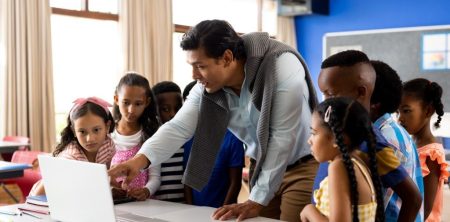Introduction: The Critical Role of Mentorship in Higher Education
In today’s diverse educational landscape, the importance of mentorship cannot be overstated. As colleges aim to create inclusive environments that foster personal and academic growth, the role of minority mentors becomes increasingly vital. Among these mentors, college athletes stand out due to their unique experiences, resilience, and leadership skills. This article will explore two compelling reasons why colleges need athletes as minority mentors: the power of representation and the development of leadership skills.
Representation: The Impact of Visible Role Models
One of the primary reasons colleges need athletes as minority mentors is the critical role of representation. In higher education, minority students often face challenges related to identity, belonging, and achievement. When they see individuals who share similar backgrounds succeeding in high-pressure environments, it can significantly influence their own aspirations and confidence.
Visibility of Success:
Athletes who come from minority backgrounds have often overcome substantial obstacles to reach their collegiate level of competition. Their stories of resilience and determination resonate deeply with minority students who may feel isolated in a predominantly different environment. For instance, a first-generation college student from a low-income neighborhood may find solace and inspiration in the journey of a student-athlete who has navigated similar socioeconomic challenges.
This visibility can serve as a catalyst for motivation. When minority students can envision themselves in roles of success, they are more likely to engage in their academic pursuits with vigor. Athletes can share their experiences, highlighting the importance of education alongside sports. This duality demonstrates that success is attainable through hard work, dedication, and strategic decision-making.
Building Community Through Shared Experiences:
Moreover, athletes as minority mentors can foster a sense of community among students. Athletes often engage in team dynamics that require collaboration, support, and mutual understanding. These experiences equip them with the skills to empathize with fellow minority students who may be grappling with similar issues.
For example, mentorship programs that pair student-athletes with incoming minority students can create a supportive network. These relationships can ease the transition into college life, helping students navigate academic challenges, social integration, and personal development. When minority mentees see their mentors actively participating in academic and social initiatives, it reinforces the idea that they too can thrive in college.
Leadership: Developing Essential Skills for the Future
Another significant reason colleges need athletes as minority mentors is the leadership skills that these athletes bring to the mentoring relationship. Engaging in athletics at the collegiate level requires not only physical prowess but also strategic thinking, discipline, and emotional intelligence. As mentors, athletes can impart these valuable skills to their mentees, preparing them for future challenges.
Teaching Resilience and Discipline:
Athletes are trained to handle setbacks, learn from failures, and maintain a strong work ethic. These qualities are essential in both academic and professional settings. By sharing their experiences of overcoming adversity—be it through injury, loss, or balancing academic responsibilities with sports—athletes can instill a sense of resilience in their mentees.
For example, an athlete who has faced a significant injury can mentor a student struggling with academic pressure, providing insights on how to cope with setbacks and maintain focus on long-term goals. This mentorship not only equips the mentee with coping strategies but also encourages them to adopt a growth mindset, viewing challenges as opportunities for personal development.
Fostering Emotional Intelligence:
Furthermore, the competitive nature of athletics fosters high levels of emotional intelligence. Athletes must work as a team, communicate effectively, and manage conflicts—all essential skills in professional environments. By acting as mentors, athletes can guide minority students in developing these skills, which are increasingly valued by employers across industries.
For instance, mentoring relationships can include role-playing scenarios that focus on conflict resolution or effective communication strategies. By practicing these skills in a safe environment, mentees can build confidence and become more adept at navigating interpersonal dynamics in their future careers.
Conclusion: The Mutual Benefits of Mentorship
In conclusion, the presence of athletes as minority mentors in colleges is not only beneficial for the mentees but also for the mentors themselves and the broader campus community. By offering representation, athletes can inspire and motivate minority students, helping them navigate the challenges of higher education. Additionally, the leadership skills that athletes develop through their experiences can significantly impact their mentees, preparing them for future success.
As colleges continue to strive for inclusivity and diversity, integrating athlete mentors into mentorship programs can create a positive ripple effect throughout the campus. This collaboration not only uplifts minority students but fosters an environment where all students can thrive. By recognizing the importance of these mentorship relationships, colleges can take significant strides toward building a more equitable and supportive educational landscape.

